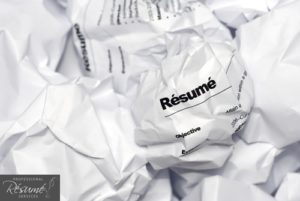When you sit down to write an executive cover letter, you may have many different thoughts running through your mind. Will the hiring manager even read this? Why can’t I simply regurgitate my resume? Aren’t all cover letters the same?
The truth is, cover letters are difficult to write when you write them properly. They shouldn’t be the same as your resume, and yes, hiring managers do read the good ones. You just have to make yours stand out from the rest by being appropriately creative in your writing. If this doesn’t seem like your style, here are some tips from a cover letter writing service to help you out.
Distinguish Cover Letters From Resumes
One mistake many executives make is turning their resume into paragraph form and calling it a cover letter. This isn’t the purpose. Your executive cover letter should show more of your personality and creativity, rather than your experiences in the industry. You will likely send in your resume and cover letter at the same time, so no one will want to read the same thing twice.
Be Brief and To The Point
Don’t include more than two or three paragraphs on your executive cover letter. In fact, cover letters closely resemble executive profiles, since they should just be short statements describing your value and what you bring to the table. No hiring manager wants to read a lengthy cover letter.
Showcase Your Ability to Help The Company
As far as the content of your executive cover letter goes, write more about how you can help the company, rather than focusing on your past achievements. You may need to use a cover letter writing service to help iron out the details. It’s easy to talk about how good of an employee you are, but everyone does that. When you demonstrate your knowledge about the company and tie in your experiences, your cover letter will stand out.
Be Creative and Conversational
As an executive, most resumes and cover letters you write are likely cut-and-dry. It doesn’t hurt to be a little creative, at times. Try writing your executive cover letter in more of a conversational tone. Incorporate random facts about your industry or tell a very short story to keep the reader engaged.
Professional Resume Services knows the ins-and-outs of a great executive cover letter. We are an executive resume writing service with expertise in resumes, cover letters, networking, LinkedIn profile development and more. If you’re struggling with your cover letter in any way, feel free to reach out to us at any time.
Are you about to begin your executive job search? Have you been searching for a job recently with no luck? Either way, you need to be careful with the wording in your resume. The best professional resume writers can tell you an extensive list of commonly used words that will make recruiters stop reading.
You may think those words apply to you perfectly, but so do hundreds of other people who send in their resumes to the same place. Here are some of the words you may think are harmless, but can actually drive recruiters away from your resume.
1. Enthusiastic
Every cover letter writing service sees this word come across their desk, and so do recruiters. If you aren’t enthusiastic about the job possibility, why would you be applying? This is just an unnecessary word that should be implied in your writing.
2. Motivated
Sending your resume is a sign of motivation—unless, of course, you choose to submit a terrible resume rather than seek the help of the best professional resume writers. There’s no need to explain why you’re motivated.
3. Creative
Creativity is something everyone thinks they have, but in reality, very few people do. Furthermore, those people likely aren’t searching for jobs. The word “creative” will get overlooked quickly because most people can’t back it up with proof.
4. Experienced
You’re showing your experience on the resume, so you don’t need to reiterate it. The best executive resume format will display your experience in a separate section, which needs no further explanation.
5. Team Player
It’s great to be a team player, but you don’t have to talk about it on your resume. The best professional resume writers will tell you to explain a situation in which you were a team player, but they will never actually write out the words. Everyone writes them, but you shouldn’t.
6. Results-Oriented
This may have looked good on a resume in the past, but not today. Any company hiring an executive expects them to be results-oriented. On the other hand, if you truly are results-oriented, your resume should show it.
7. Determined
This is another word that’s implied just because you submitted the resume. If you’re truly determined to get a job, go to a cover letter writing service to brush up your cover letter and resume. Don’t tell a recruiter you’re determined, because they probably won’t read anymore.
Professional Resume Services has some of the best professional resume writers in the industry to help you eliminate the common, yet unnecessary, words from your resume. Feel free to contact us if you need help tweaking your executive resume to make it more effective.
One of the biggest questions for many executives is whether it’s worth bothering with referrals when searching for a new job. Some people feel it’s unnecessary, especially if you have a lot of work experience. However, with the importance of networking in today’s business world, referrals ultimately go hand-in-hand. Even executive resume services will tell you to find the best referrals you can and combine them with networking to accelerate your job hunt. Here are answers to the common question of whether referrals are worth it.
The Right Referrals Can Help
You can’t just ask anyone for a referral and expect them to help you get the job. The best cover letter writing service will suggest to reach out to someone you know and trust, like a former boss, co-worker or simply a professional contact who knows you well.
The secret is to not only find referrals you know well, but also find people who have a mutual connection within the industry or company you want to work in. Companies want to hire people who they know or think they know well. Having a mutual connection is the best way to create that spark.
Don’t Focus Solely on the Job With Referrals
If you don’t have any mutual connections off the top of your head, you can use a service like LinkedIn to find them. The best resume writing service can help you locate different leads to get started with the process. You just have to remember these potential connections are people, too, and you won’t seem very approachable if you start talking about yourself right off the bat.
Instead, take a personable approach and give the person compliments on their profile, accomplishments and anything else you see. You’ll likely get a better response as a result and can talk more about achievements and how they got there before talking about yourself.
Talking to a Hiring Manager About a Referral
When you have a solid referral or two, you’ll have to talk to the hiring manager about them. A cover letter writing service can help you say all the right things about your mutual connection in the cover letter, but it’s up to you once you get an interview. Figure out what common traits you share with your mutual connection. If the hiring manager feels like they are hiring someone they know, you’ll be more likely to get the job.
Professional Resume Services has helped executives get the best referrals to expedite their job search. If you’re unsure whether you have the right referrals, or if you need the assistance of executive resume services, feel free to reach out to us at any time.
One common theme among executives is they tend to make the same mistakes on their resumes. The good thing is the mistakes are usually easy to correct and avoid in the future. The bad thing is many executives don’t want to change anything, so they won’t stand apart from the rest of the group as a result. When you use the best executive resume writing service, you’ll be able to learn about your resume’s flaws and can correct them accordingly. Here are some of the mistakes people most commonly make, and how you can avoid them when crafting your executive resume.
1. Be Clear
Executives tend to use a big vocabulary and large, sophisticated sentences. While it may seem impressive to you, an HR manager doesn’t want to read through it. Any executive resume writing firm will tell you to be clear with your words and sentences. Use action words in short sentences to make a greater impact on the reader.
2. Keep it Simple
Simplicity is key with any resume, including executive resumes. Many executives like to make an extensive executive bio on their resume to highlight accomplishments. While it’s important to talk at length about accomplishments, the executive bio isn’t the place for it. Short and sweet is the best way to go.
3. Talk About Accomplishments, Not Responsibilities
You can mention what job responsibilities you have, but don’t waste a lot of space doing so. Instead, talk specifically about what you accomplished. Use some numbers and statistics rather than general statements, but don’t overdo it.
4. Target Every Resume
The first thing the best executive resume writing service will tell you is to target every executive resume to the company you’re applying to. Sending out the same resume to every company will be obvious and will likely get yours thrown out of the group. Learn a little bit about each company and make it clear in your resume that you can help them grow and prosper.
5. Include a LinkedIn Profile Link
You have to have a complete LinkedIn profile if you’re an executive today. If you’re sending out executive resumes, include the link to your profile in your resume. Recruiters and companies want to see you’re connected to other executives. Not only does this show you’re social, but it also gives them a little glimpse into your personality.
You may be making some critical mistakes like these in your executive resume and not even know it. Feel free to reach out to us if you have any concerns about how your executive resume looks.
Our Top Four Picks for the Best New Year’s Resolutions for Executive Job Hunters
BlogJob Search
Did you know that more than 100 million people in America make New Year’s resolutions each year? If one of your top resolutions is to find a job that fits your skills and abilities, then you need to take steps to improve your chances of being hired.
Finding a job is no small feat, especially in the executive sector where the process to get hired is more cutthroat than ever before. While your initial thought may be to hire the best executive resume writing services, there are a few other tips that can help along the way, as well.
1. Clearly define the job you want
It isn’t good enough to just state you want a new job. The more specific you get, the better results you are going to see. If you know what company you want to work for, write that down, too. Make sure you are realistic. Not everyone can move into the top executive position at a Fortune 500 company straight from the job market. The more specific and realistic you are, the better chance you have of achieving your resolution.
2. Create actionable steps
There are many reasons why resolutions fail. A common theme, however, is you don’t take the necessary actions to accomplish the goals you have set. You have to make it happen. Do you want a position as a Vice President of Sales at a large retail chain? If so, outline the steps you can take to achieve this goal.
For example:
-
- List the business options you are interested in.
-
- Use LinkedIn to post your resume after using executive resume services.
-
- Attend networking events where these companies are present.
-
- Learn who the decision makers are at the organizations.
- Tailor your actionable skills to meet your specific job hunt goals.
3. Revamp your resume
A resume is the first impression an HR manager receives of a candidate. If yours isn’t up to the company’s standards, then it may be time to revamp it. If you don’t have the time or ability to do this yourself, consider using the services of the best executive resume writing services. Not only can these services help you update your resume, but they provide other services, as well. For example, many resume companies also offer a cover letter writing service.
4. Consider using a recruiter
Being noticed in a saturated job market is getting more and more difficult. Regardless of your degree, experience and ability, there is always someone else out there who may be a bit more impressive. With the help of a recruiter, you can find the jobs suiting the goals you outlined as part of your New Year’s resolution.
Getting a job isn’t hard. Landing the job you really want, especially at the executive level, can be a challenge. With the tips here, you are on your way to getting a job that challenges you, while letting you show off your abilities and skills. If you would like more information about resume writing services, or getting the job you want this year, contact us today.
As an executive professional, you’ve undoubtedly picked up several skills throughout your career—so many, in fact, that you may not know where to start in listing them on your resume! However, if you’re looking for a new executive position, some skills are more beneficial to your hiring prospects than others. Here are a few skills that can help you with any job search.
1. Writing
You’re going to have to do some form of writing at just about any job you get. As a result, strong writing skills will benefit you no matter what job search route you take. If writing is your strong suit, you can showcase it on your executive LinkedIn profile by attaching some of your best reports to your page. Be sure to check that you aren’t bound by an NDAs before you do this, however; while you want to show off your strengths, you don’t want to divulge sensitive information in the process. To get around this, you can always draw up a mock report instead.
2. Project Management
If you’ve shown the ability to manage both large and small projects in the workforce, you’ll be putting yourself ahead of the game. The best resume writing services will ask you about your project management experience first because it’s a skill employers look at very seriously. Project management takes multitasking, the ability to rein others in and encourage teamwork to complete a task and much more. Listing this ability will prove you’re worth your salt as an executive.
3. Leadership
You will have a hard time finding an executive-level job if you don’t have any leadership experience. Employers want to hire someone who is independent and can help guide others on the team. If you’re able to display some examples on your executive LinkedIn profile, you’ll look impressive to hiring executives.
4. Advanced Office Management
A competent expert can ultimately help workflow improve the office by streamlining how the staff carries out their day-to-day activities. This skill ties in closely to leadership and project management, mentioned above. When you talk to a cover letter writing service, be sure and tell them what type of office skills you have so they can help you paint the best picture on your cover letter and resume. Anyone can say they have office skills, but giving concrete examples will make your experience stand out among the rest.
5. Multilingual
Speaking multiple languages fluently is great for business today. You may not have learned different languages in order to land your dream job, but it will definitely help you out in the long run. Companies looking to expand globally need multilingual employees and executives. Be sure to provide examples on your resume or cover letter.
These are just some of the most optimal general skills to help with any job search. If you’re having a hard time coming up with your best skills, feel free to reach out to us and we can help you find your strengths.
Job interviews can be intimidating, no matter what level you are in your field. There’s a lot of pressure involved, as you’re faced with yet another situation where you have to make a positive impression on a prospective employer—with the added complication of having to speak practically on the fly. Unfortunately, it’s very easy to mess up under this situation. We’re here to inform you of some of the most common interview mistakes and how you can avoid them.
1. Revealing Too Much About Your Location
Remote work has yet to really catch on in today’s business climate. As such, the majority of employers are looking for someone who lives close enough to the company to commute on a regular basis. Needless to say, someone who lives too far away from headquarters to commute a reasonable distance or needs time to move across the country may not get chosen over the other candidates.
It’s never worth it to lie on your resume about where you live just so you can land a certain position, nor is it worth it to try to haggle your way into a job by admitting you live too far away but your skills are so valuable they should tweak the position’s requirements just for you. Employers can see your location on your executive LinkedIn profile, anyway.
2. Lack of Post-Interview Communication
Your correspondence with the interviewer never ends once the interview is over, even if you don’t get the job. It’s important to consider the time the company has already invested in you, and respond accordingly. Be sure to send along a formal word of thanks to your prospective employer for the time they’ve spent on the hiring process, if only for the sake of maintaining a good impression. We know you’re probably extremely busy, b you’ll want to take the time to sit down and follow up with the company after you interview.
Failing to give your thanks may leave a bad taste in an employer’s mouth, giving them pause as to whether to keep in further touch with you. As you may know, people in your industry talk, and that bad taste may spread to other executives and companies in your field. You can always turn to a cover letter writing service for help with your thank you letter, if you aren’t sure what to say. Your efforts will be appreciated, even if you don’t land the job! The company may keep you in mind when it comes to other openings, or pass your information along to another company who could use someone with your credentials.
3. Excessive Jargon
It’s a well-known fact if you’re going to be involved within a specific industry you have to know what you’re talking about. Some jargon is just going to be part of daily business conversation. However, you shouldn’t use so much industry speak that those around you will need a dictionary to figure out what you’re talking about! There’s such a thing as too much specialized language, even among people in your industry. While your coworkers may be able to understand what you’re saying, it’s possible that your interviewer works in another area in the company (like human resources) and isn’t as fluent. You can rely on the best resume writing services to help you tweak your resume and cover letter so that anyone in the company can understand what skills you can add to their executive team.
There are many other ways you can help you land and succeed during your first interview. You can always turn to us for help with this or any other step of your job hunting process. And as always, reach out to us any time for job hunting assistance, executive LinkedIn profile assistance or answers to your questions!
Cover letters are and have always been one of the trickiest parts of the job hunting process. Cover letters are a great way to show potential employers how your skills can benefit the company before they even look at your resume. Many experts wonder just how to approach writing a cover letter, and where the differences between resumes and cover letters really lie. In this blog, we’ll cover exactly how to format your cover letter and what’s worth including to boost your chances of success.
Conciseness
One of the most important things to remember when writing cover letters for resume is that the two shouldn’t be identical! Yes, your cover letter will contain some of the same information found in your resume, but you don’t need or have to include every single facet. Remember: hiring executives only have a few seconds to read your information. It’s best to keep your cover letter short and to the point, so you don’t waste the recruiter’s time and have a higher chance of getting called back.
Talk About the Company
Before you draft the first sentence of your cover letter, you should do ample research about the company you’re looking to work for. Just like your resume, your cover letter should be targeted to the employer. The best way to research the company is to network! Talk to other executives to see how you could contribute to their business and fit into their office culture. You’ll also want to be sure to look into their work within and contributions to the industry, as well as any other companies they compete with. Showing you know quite a bit about their company will prove you’re invested and worth hiring. You may just find something similar to your own work achievements, which you can tie into your cover letter.
Your Strengths
One of the primary functions of resumes and cover letters is to illustrate your strengths and what you have to offer to a company. Be sure to go into these qualities in your cover letter. Talk about your skills and accomplishments you’ve gained throughout your career, what these mean and how they’d make you a valuable member of the company.
You should be trying to sell yourself as much as possible. Just don’t overdo it! You don’t want to come off as a braggart, though a bit of boasting is okay. Stick to as much factual information as possible by talking about how you’ve affected the industry, any similar or competitive companies you’ve worked for in the past and your experiences within your chosen field.
Referrals
Knowing someone who may have turned you onto the company will help you immediately catch a hiring executive’s eye. In fact, you may want to point out this fact right away. Networking is and has always been an important part of landing a job. Over your many years of career experience, you’ve undoubtedly amassed a large number of contacts and referrals. Now’s the time to really rely on them! A referral can vouch for you and your ability to be a great addition to the company. You never want to pass up on someone putting in a good word for you.
We understand writing cover letters isn’t easy with so much experience under your belt, so we hope this blog will start you off on the right foot. You can always turn to a cover letter writing service for any extra help you may need to get started or sort out any kinks. If you have any questions about your executive cover letter, feel free to get in touch with us!








